Events
Application
Events
Application
Our primary school currently has 330 children aged 5 to 10, forming a lively bilingual school community in both German and English. Together with our dedicated educational professionals, the children learn, play, and discover the world – both in lessons and beyond the classroom.
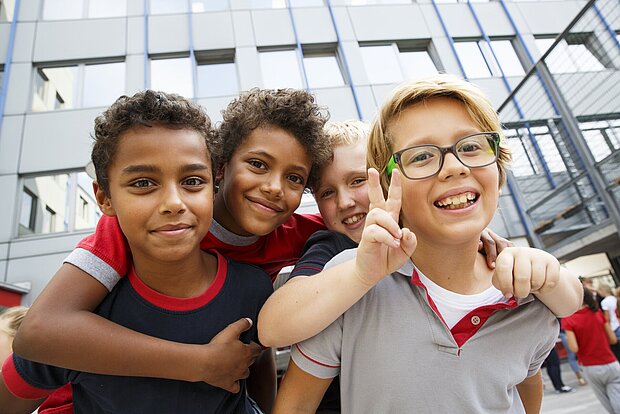
Children who learn bilingually for several years perform better in foreign languages, their native language, and other subjects. Bilingualism promotes cognitive development, language awareness, creativity, and flexible thinking. Our teachers instruct equally in both German and English, using the immersion method in their mother tongue, and support understanding with gestures, facial expressions, and images. Our students discuss, give presentations, and do maths bilingually, feeling confident in both languages by the end of primary school. For children needing extra support in either German or English, we offer targeted programmes to quickly bring them up to the required level for their year group.
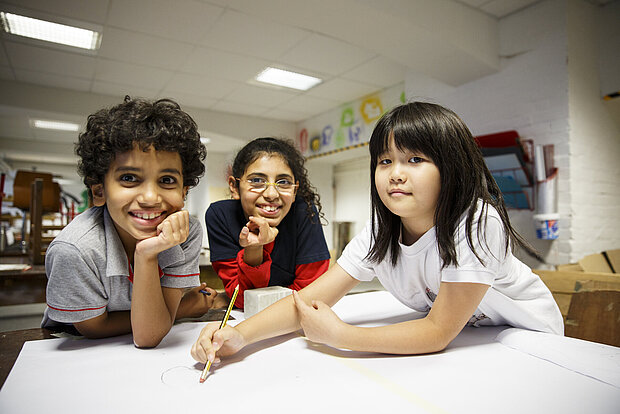
We place great emphasis on encouraging independent learning and complementing lessons with practical experiences. Our teachers regularly convey content through team and project work (e.g., museum and theatre visits, interviews, or model building). The children learn to approach a topic creatively and from various perspectives, both independently and in groups.
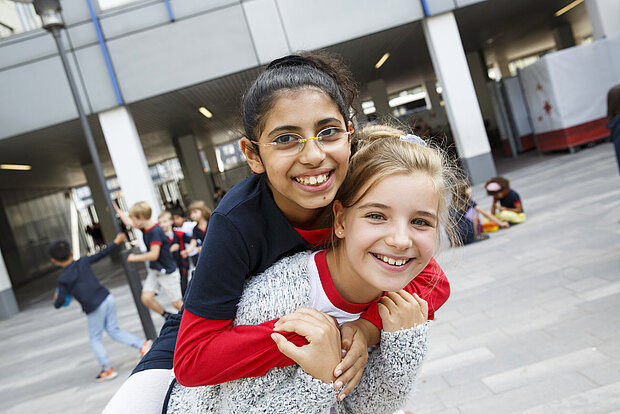
Creativity is essential for joy and success – both in learning and in life planning. That's why we place great value on musical and artistic subjects. Our classrooms are well-equipped for these areas. All primary students learn to read music and play a simple instrument with us.
We encourage children's creativity through a wide range of elective and after-school activities. In-house exhibitions and the staging of concerts are integral parts of our school life, as are visits to theatres, concerts, and museums.
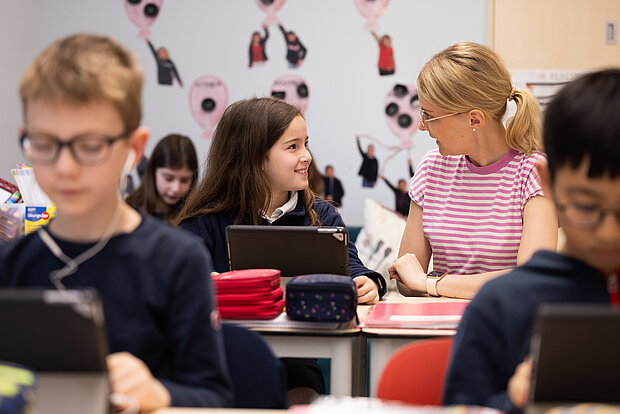
Our modern, well-equipped classrooms support a contemporary and digital learning environment:
Each room is fitted with interactive, writable whiteboards that enable internet research and the use of digital learning tools. This not only makes lessons more engaging and visual, but also connects them closely to real-life applications.
In addition, every student has access to their own laptop to purposefully develop digital skills. Writing texts, conducting online research, solving problems, and creating presentations are integral parts of everyday lessons.
This consistent use of digital media strengthens our students’ media literacy in a lasting way. It boosts their motivation to learn and opens up a wide range of new learning opportunities – modern, interactive, and filled with enthusiasm for digital work.
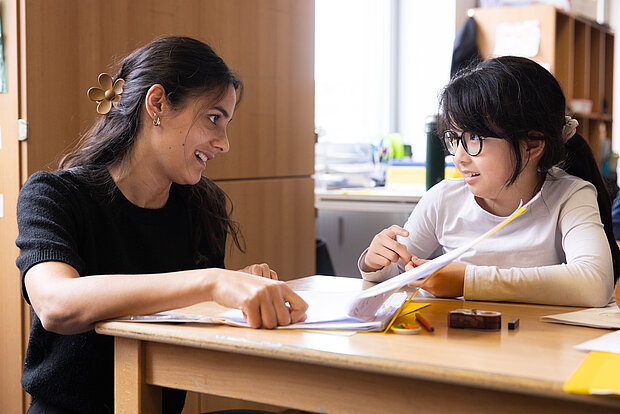
Supporting gifted students is a key priority for us. Through ongoing observation, individual discussions, and diagnostic assessments, we are able to identify exceptional strengths at an early stage. Together with our specialist staff, we create tailored learning opportunities – whether through differentiated instruction, project-based learning, or participation in specialized programs and competitions.
In addition, we offer enrichment opportunities such as the “Drehtürmodell” (revolving-door model), advanced learning courses, and personalized project supervision in small groups. Clubs and extracurricular activities also contribute to the development of each student’s talents.
Participation in competitions like the Kangaroo Math Contest, PriMa, or the Mathematics Olympiad further enriches our program. We work closely with our school psychologist and our specialist for gifted education to ensure the best possible support for each gifted learner.
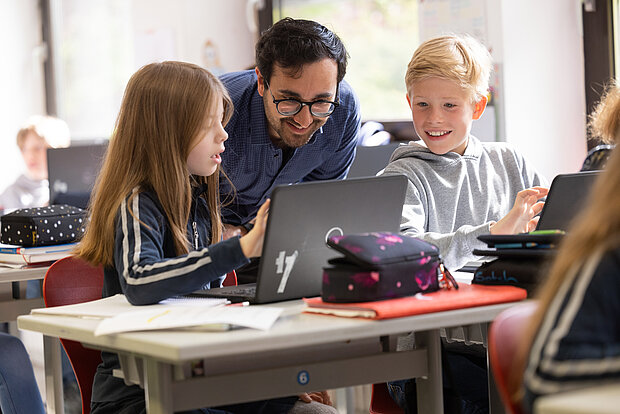
We place great importance on our students learning scientific techniques from an early age. They observe, measure, classify, and analyse phenomena from their environment and, often through playful and creative approaches, develop solutions to everyday problems.
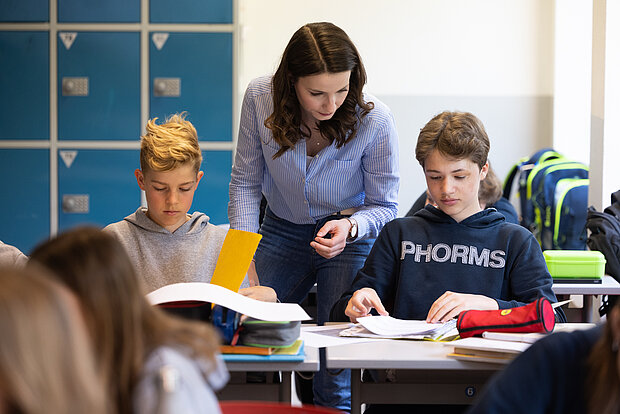
IOur primary school is regularly reviewed by the external, independent Institute for Educational Monitoring and Quality Development (IfBQ).
All students in Hamburg take part in a standardised test (KERMIT), which is based on the educational standards in German and Mathematics set by the Standing Conference of the Ministers of Education and Cultural Affairs. These results provide us with neutral feedback our school.

The children are welcomed and looked after by our educators and teaching assistants until the start of lessons.
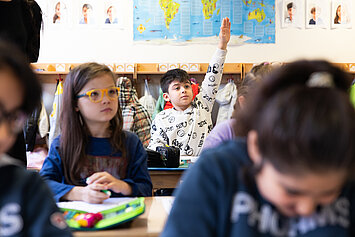
The children are taught in subjects such as German, English, Mathematics, Art, and Music.
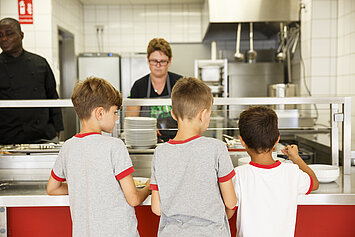
For a balanced and healthy diet, the chefs of our regional organic caterer prepare fresh meals every day in the campus canteen.
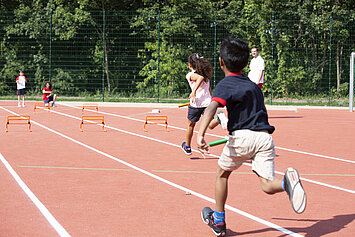
The children are taught in subjects such as Topic, Sports, and Theatre.
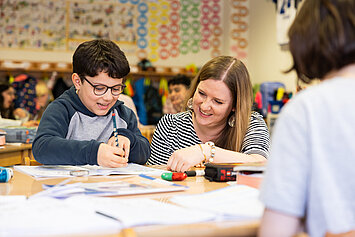
Here, support lessons, class meetings, and study time take place. The children can be picked up at 3:20 pm.
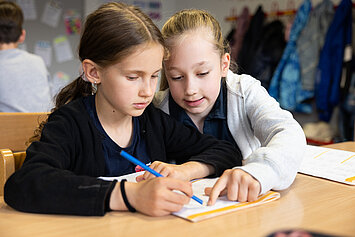
Our primary school teaching assistants help with individual study time, providing support and answering questions. The children can be picked up at 4:15 pm.
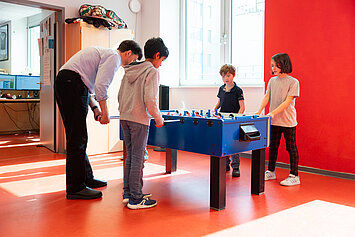
Extended, fee-based after-school care is offered by our educational staff. In addition to regular care options, children can also attend various clubs.
Class cohesion is very important to us, as we believe that only together can we grow and learn. That’s why we regularly organise class days where the class teacher and TA stay with their students to strengthen the connections between the students and foster a supportive, harmonious environment.«
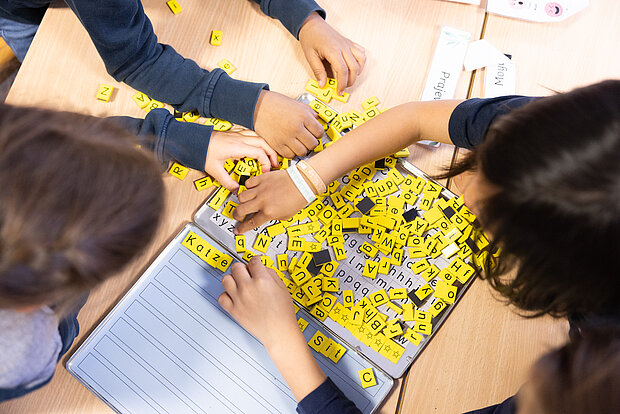
Competitions help to foster important academic skills in a fun and engaging way outside of the regular school routine. They are both enjoyable and challenging. As a young school, we already have many students who enjoy and participate in various competitions with notable success.
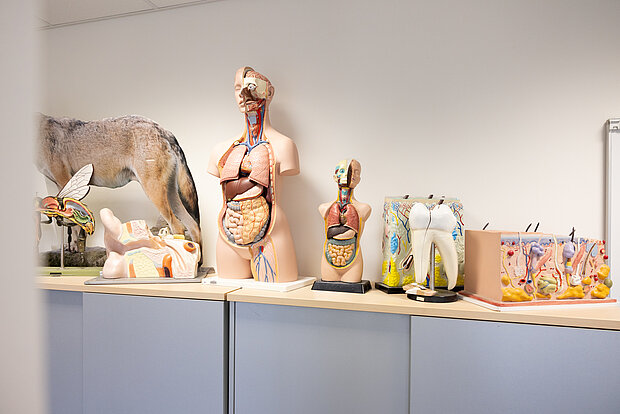
NATEX (Scientific Experimentation) is a competition for all students in years 4 to 10 who have an interest in science and experimentation.
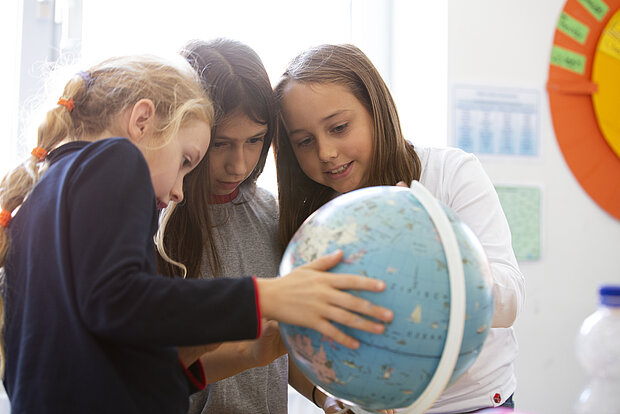
The HEUREKA! competition is a student and school competition for years 3 to 8. The first part focuses on the topic of humans and nature, while the second part asks questions related to general knowledge about the world.
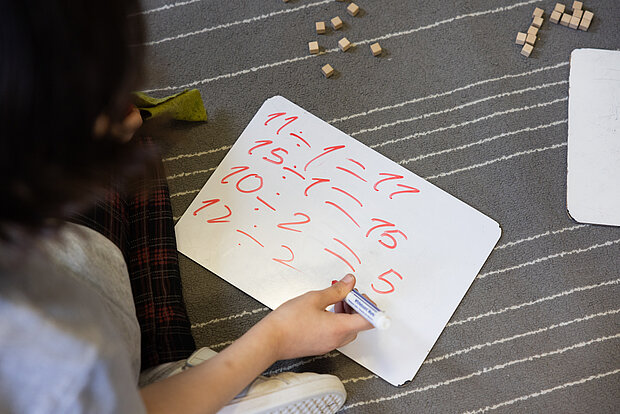
The Kangaroo Maths competition is the largest maths competition in the world, with over 100 countries participating. All our classes up to year 9 participate in this annually.
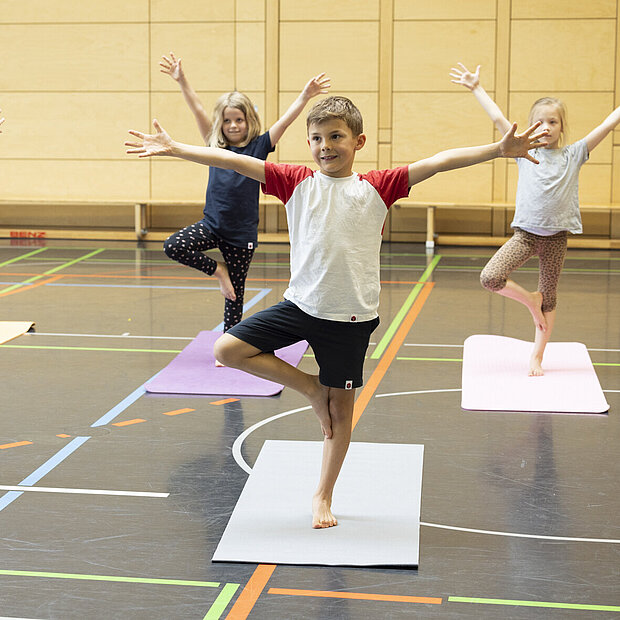
Yoga
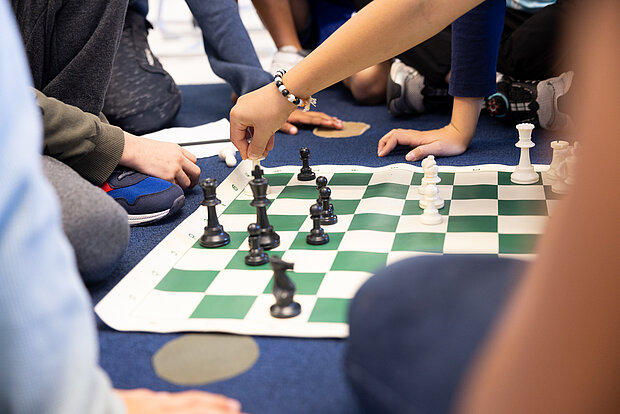
Chess
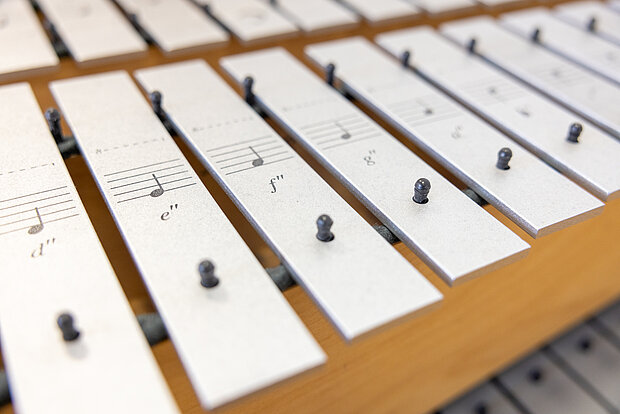
Music
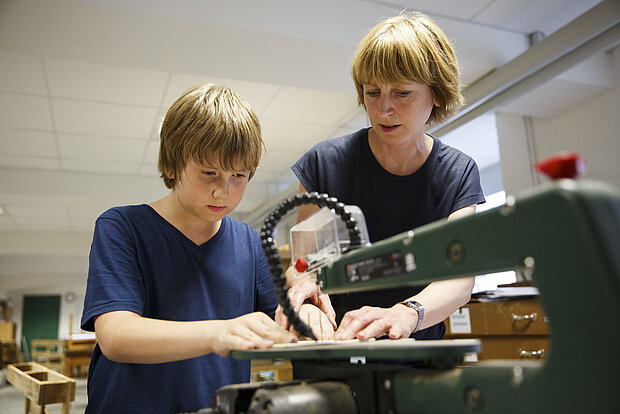
Arts and Crafts
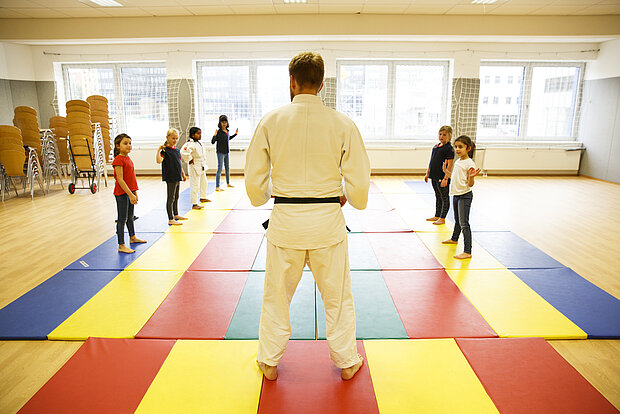
Judo
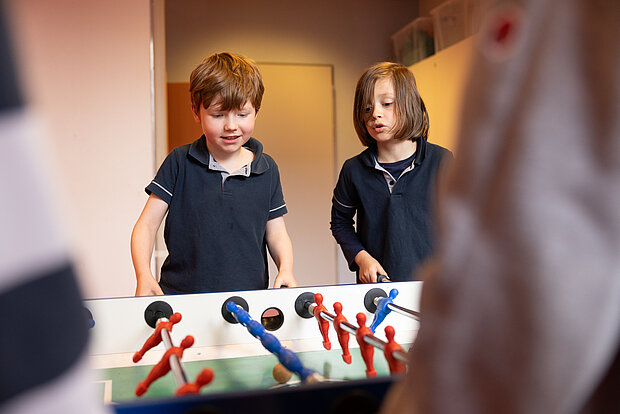
Ball Games
Social-emotional learning is an integral part of our elementary school and is taught during the so-called KLU lessons. Students explore age-appropriate topics such as emotions, conflict resolution, friendship, teamwork, and pro-social behavior.
Year 1: Follow the chameleon Ferdi on a treasure hunt, learning to recognize their own feelings and solve problems.
Year 2: Continue Ferdi’s adventures and work with our partner ZKV on strengths, teamwork, and conflict resolution.
Year 3: Explore Duesternbrook Castle, practicing empathy, self-responsibility, civic courage, and fairness.
Year 4: Work again with ZKV on topics like diversity, fair play, and teamwork; some students support younger peers as mentors.
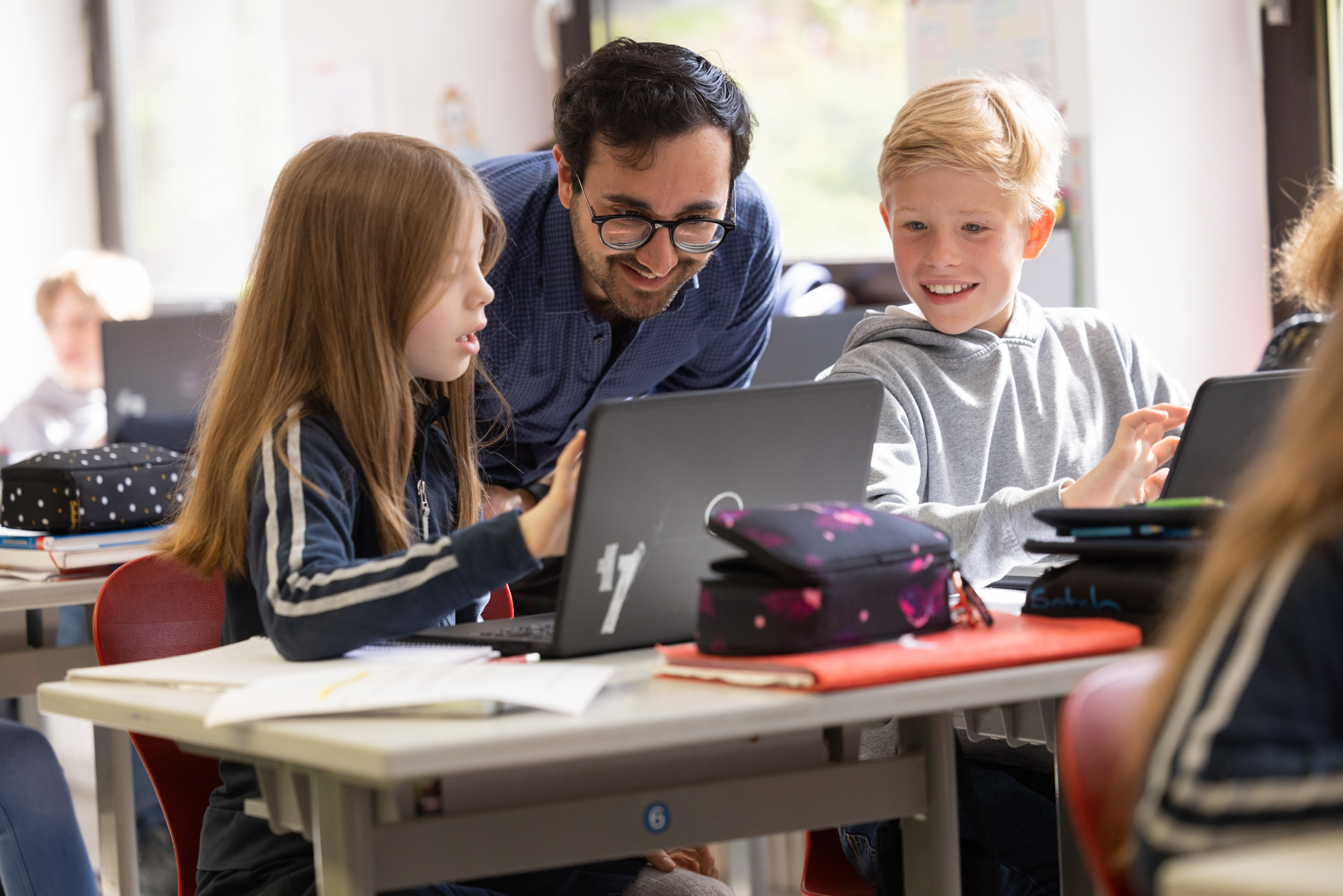
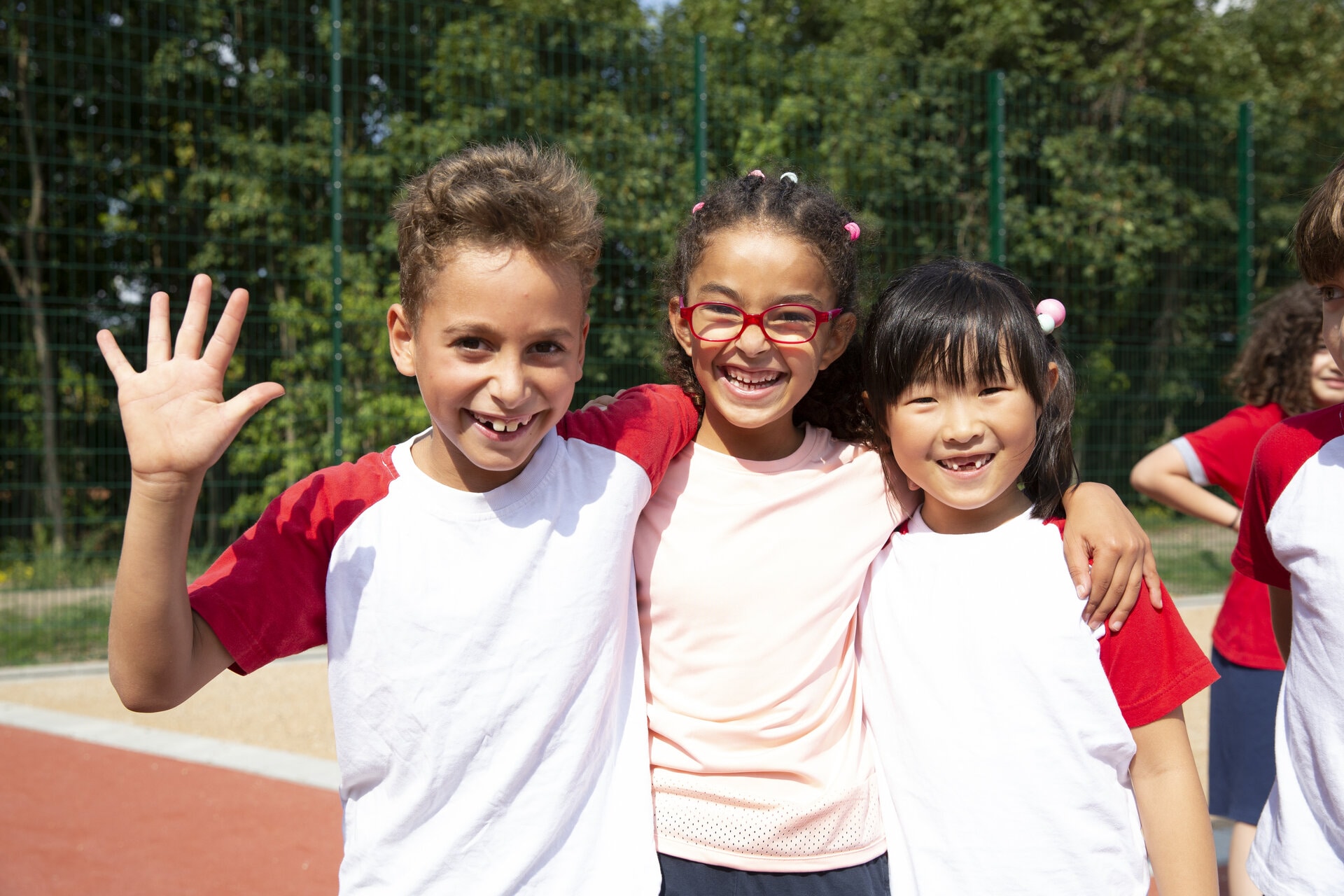
We support the use of a standard school uniform. It fosters a sense of community and improves the learning and social environment. Students should be able to develop independently of their social background and fashion trends, learning that their personality is determined from within – not by external fashions or their appearance.
School uniforms don’t have to be boring and old-fashioned. That’s why our campus collection can easily be combined with other clothing items.
Our meals are balanced, regional, and certified organic. The chefs from “Bio für Kids” prepare fresh meals every day in the school kitchen. Each day, children can choose between two dishes (one of which is vegetarian) and a raw food option at the salad bar. Our meals typically includes fish once a week and poultry or beef from organic sources twice a week. We do not serve any pork.
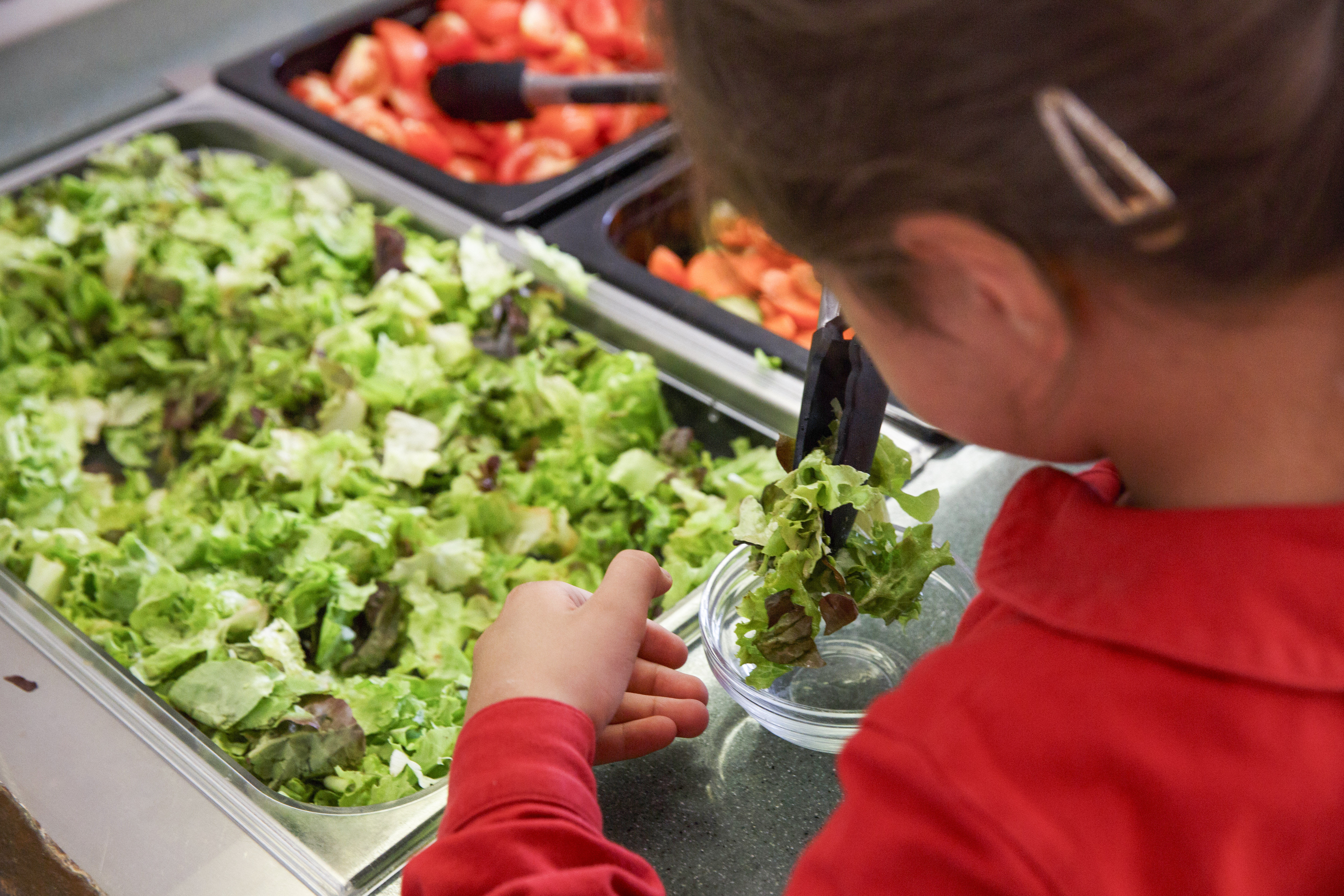
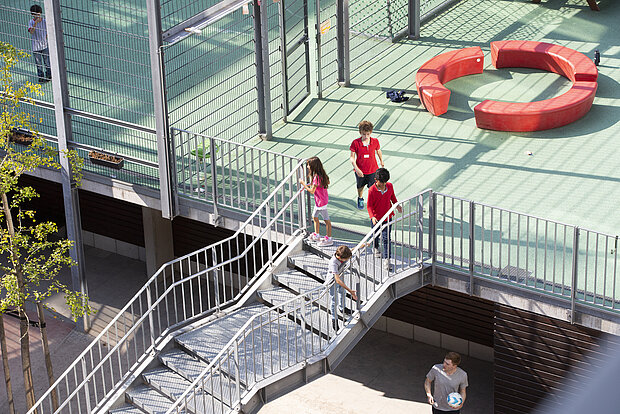
indoor schoolyard
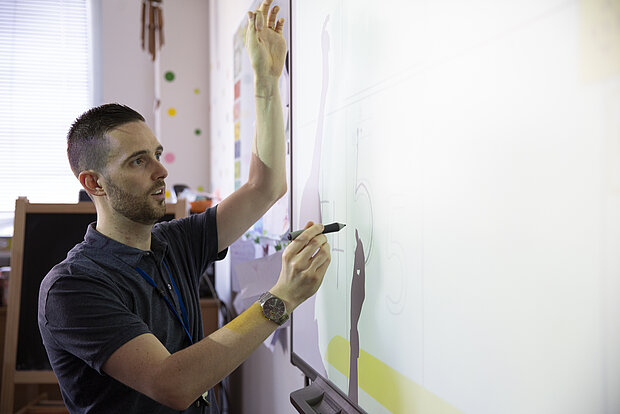
Teaching with Smartboard

Physical education
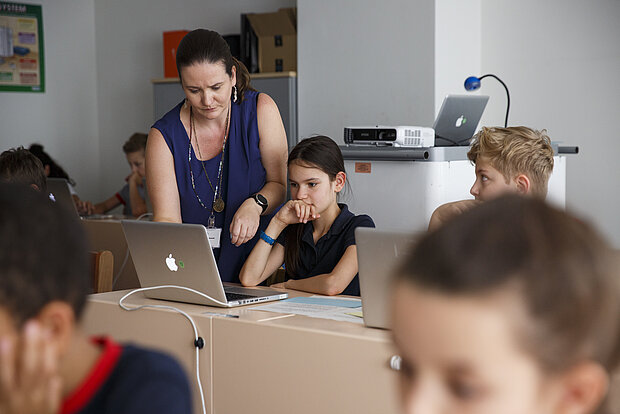
Attentive support
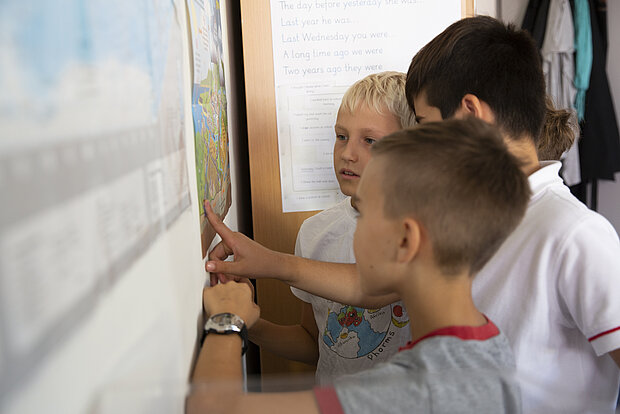
Learning together
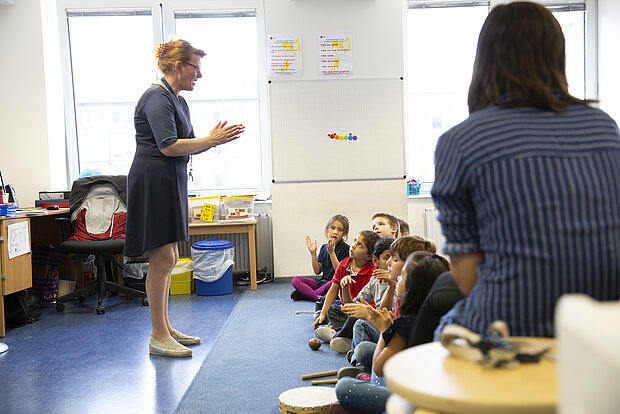
Music lessons